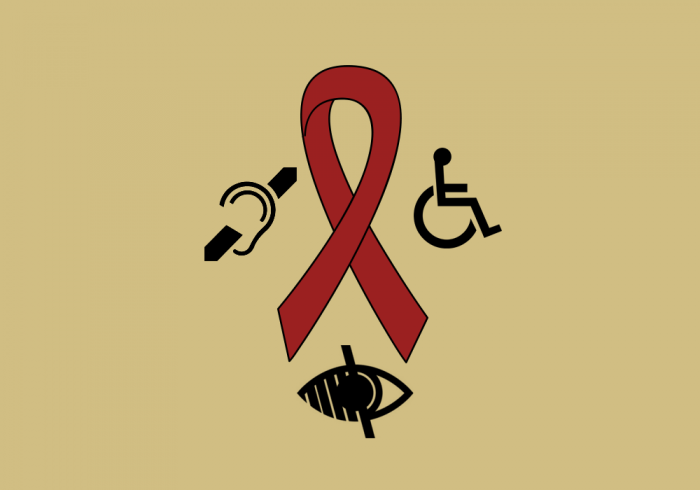July 2nd, 2015 by Rachel | Tags: Disability, HIV/AIDS, Peace Corps | No Comments »

The other day, I wrote an article about the issues persons with disability face relating to HIV/AIDS in Cameroon. Today, I am writing about potential solutions for solving HIV/AIDS issues in the disability community. I learned about these suggested ideas for working with HIV/AIDS issues in the disability community at the HIV/AIDS training in Ngaoundere, which I attended last May.
The first and foremost solution for persons with disability who are already living with HIV/AIDS is to build dialogues between the disability and HIV networks. This means that there is a need for communication between persons with disability and healthcare workers to understand better how quality of services can be improved. This can be done through setting up a support group for persons with disability living with HIV/AIDS. When a support group is set up, persons with disability living with HIV/AIDS can meet together at a designated accessible place and an assigned health care worker would be present at every meeting to provide services including counseling and treatments. The purpose of having persons with disability living with HIV/AIDS meeting together is to also have a safe space to discuss their challenges and fears and to share ideas on how to live their life with HIV/AIDS. It would also provide the health care worker an opportunity to listen to their experiences so that the health care worker can become better aware of the issues they face and learn how to provide better services. The health care worker who leads the support group can also become an educator in educating other health care workers on how to include persons with disability at their clinics. The support group should also offer micro-loans so that persons with disability living with HIV/AIDS can start a business and earn their own money to afford treatments for themselves, also food so that they can eat a good diet, and pay for transportation to the clinic and other places.
The next solution which applies to both, persons with disability living with HIV/AIDS and persons with disability living without HIV/AIDS, is to provide accessible education to all persons with disability. This means when workshops are offered in schools and clinics, accommodations such as braille, audio recordings, sign language interpreters, and transcripts need to be provided to persons with disability to ensure inclusion. If it’s just a health care worker providing the education one on one in a doctor’s office, accommodations still need to be provided. The physical structure of the building also needs to be accessible so that those with mobility disability can freely enter in the workshop. The education needs to include information about safe sex, sexual reproductive health, how the disease is transmitted, and service options.
The last solution is to advocate all organizations that have HIV/AIDS strategic plans to include persons with disability in their plans. This means that they need to be aware that they need to make sure persons with disability are not turned away from services for any reasons.






